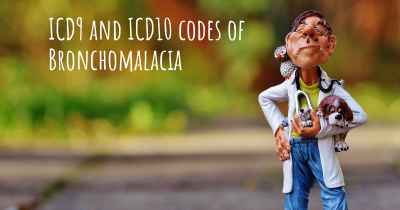What is the life expectancy of someone with Bronchomalacia?
Life expectancy of people with Bronchomalacia and recent progresses and researches in Bronchomalacia

Bronchomalacia is a condition characterized by weakened cartilage in the walls of the bronchial tubes, leading to airway collapse and breathing difficulties. The life expectancy of someone with bronchomalacia can vary depending on the severity of the condition and individual factors. While it is challenging to provide an exact figure, early diagnosis and appropriate management can significantly improve the prognosis. Treatment options may include medications, respiratory therapy, and in severe cases, surgical interventions. It is crucial for individuals with bronchomalacia to work closely with healthcare professionals to develop a personalized treatment plan and maintain a healthy lifestyle to optimize their respiratory function and overall well-being.
Bronchomalacia is a medical condition characterized by the weakening or collapse of the walls of the bronchial tubes, which are responsible for carrying air to and from the lungs. This condition can lead to various respiratory symptoms, such as wheezing, shortness of breath, and recurrent respiratory infections. The severity of bronchomalacia can vary from person to person, and the prognosis can depend on several factors.
Life expectancy is a complex topic when it comes to bronchomalacia, as it is influenced by multiple variables. It is important to note that bronchomalacia itself is not typically a life-threatening condition. However, the impact it has on an individual's respiratory function can lead to complications that may affect life expectancy.
The prognosis of bronchomalacia largely depends on the underlying cause, the extent of bronchial collapse, and the presence of any associated conditions. In some cases, bronchomalacia may be present from birth (congenital), while in others, it may develop later in life (acquired). Congenital bronchomalacia is often associated with other congenital abnormalities, such as tracheomalacia or congenital heart defects, which can further complicate the prognosis.
Acquired bronchomalacia can be caused by a variety of factors, including chronic inflammation of the airways (such as from chronic bronchitis or asthma), prolonged intubation or mechanical ventilation, or damage to the airway due to trauma or infection. The severity of bronchomalacia can range from mild to severe, with more severe cases potentially having a greater impact on life expectancy.
It is crucial to manage bronchomalacia and its associated symptoms effectively to minimize the risk of complications. Treatment options may include medications to control inflammation and improve airway function, pulmonary rehabilitation, and in some cases, surgical interventions. The effectiveness of treatment can vary depending on the individual and the underlying cause of bronchomalacia.
Individuals with mild to moderate bronchomalacia who respond well to treatment and have good overall respiratory health can often lead relatively normal lives with a near-normal life expectancy. With proper management and regular monitoring, they can maintain a good quality of life and participate in daily activities without significant limitations.
Severe cases of bronchomalacia, especially those associated with other serious medical conditions, may have a more guarded prognosis. The compromised respiratory function can increase the risk of respiratory infections, pneumonia, and respiratory failure. These complications can impact life expectancy and overall health.
It is important for individuals with bronchomalacia to work closely with their healthcare team to develop a personalized treatment plan and to monitor their respiratory health regularly. This can help identify any changes or complications early on and allow for prompt intervention.
Overall, the life expectancy of someone with bronchomalacia can vary significantly depending on the individual's specific circumstances, the severity of the condition, and the presence of any associated medical conditions. It is essential to focus on managing symptoms, optimizing respiratory function, and addressing any underlying causes or complications to improve overall health and well-being.








